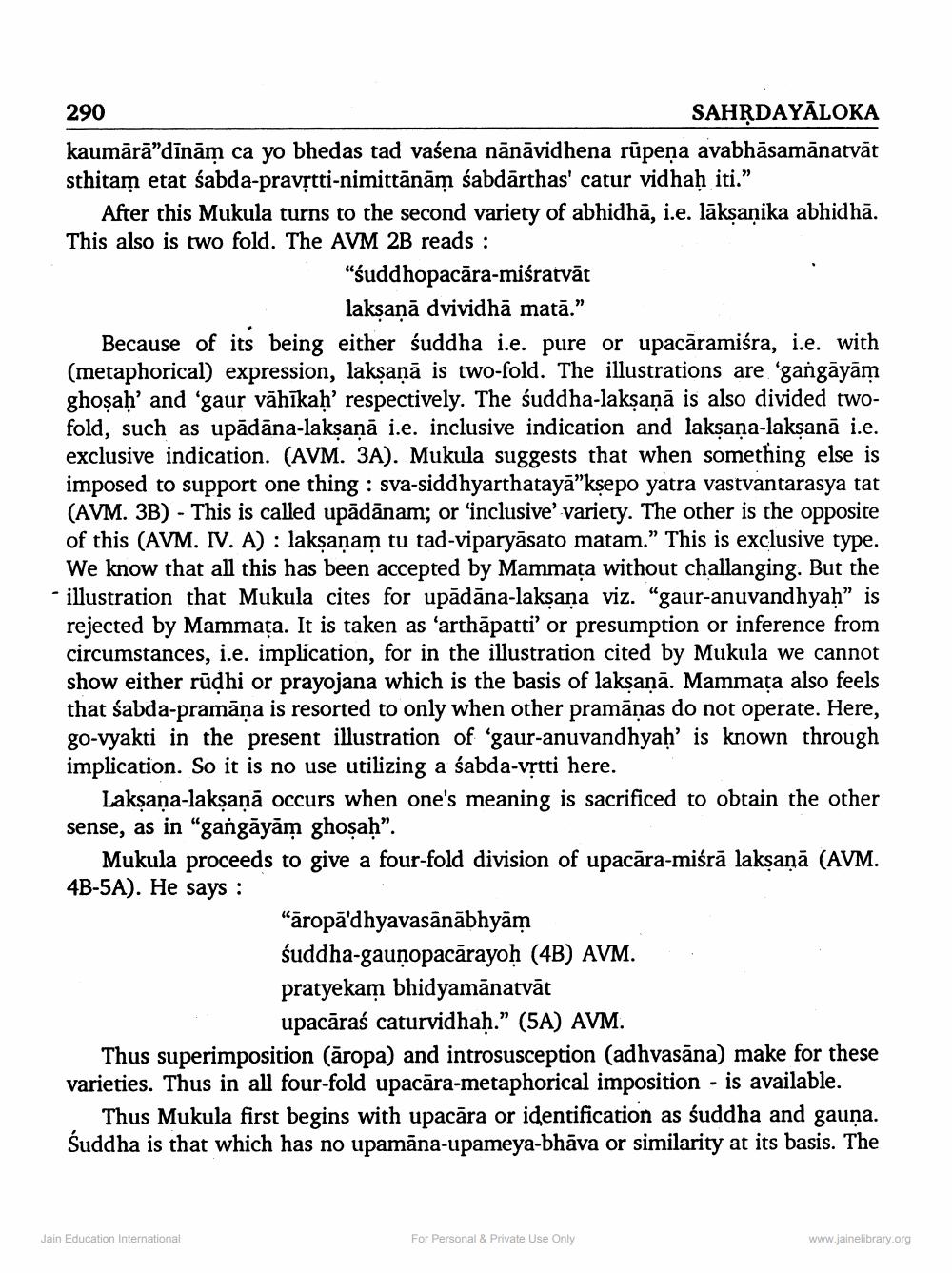________________
SAHṚDAYALOKA
kaumārā❞dīnām ca yo bhedas tad vaśena nānāvidhena rūpeṇa avabhāsamānatvāt sthitam etat sabda-pravṛtti-nimittānām śabdarthas' catur vidhaḥ iti."
290
After this Mukula turns to the second variety of abhidhā, i.e. lākṣaṇika abhidhā. This also is two fold. The AVM 2B reads:
"śuddhopacara-miśratvāt lakṣaṇā dvividhā matā."
Because of its being either śuddha i.e. pure or upacāramiśra, i.e. with (metaphorical) expression, lakṣaṇā is two-fold. The illustrations are 'gangāyām ghoṣaḥ' and 'gaur vähīkaḥ' respectively. The śuddha-lakṣaṇā is also divided twofold, such as upādāna-lakṣaṇā i.e. inclusive indication and lakṣaṇa-lakṣanā i.e. exclusive indication. (AVM. 3A). Mukula suggests that when something else is imposed to support one thing: sva-siddhyarthatayā"kṣepo yatra vastvantarasya tat (AVM. 3B) - This is called upādānam; or 'inclusive' variety. The other is the opposite of this (AVM. IV. A) : lakṣaṇam tu tad-viparyāsato matam." This is exclusive type. We know that all this has been accepted by Mammata without challanging. But the - illustration that Mukula cites for upādāna-lakṣaṇa viz. "gaur-anuvandhyaḥ" is rejected by Mammata. It is taken as 'arthāpatti' or presumption or inference from circumstances, i.e. implication, for in the illustration cited by Mukula we cannot show either rūḍhi or prayojana which is the basis of lakṣaṇā. Mammața also feels that sabda-pramāņa is resorted to only when other pramāņas do not operate. Here, go-vyakti in the present illustration of 'gaur-anuvandhyaḥ' is known through implication. So it is no use utilizing a sabda-vṛtti here.
Lakṣaṇa-lakṣaṇā occurs when one's meaning is sacrificed to obtain the other sense, as in "gangāyām ghoṣaḥ".
Mukula proceeds to give a four-fold division of upacāra-miśrā lakṣaṇā (AVM. 4B-5A). He says:
"āropā'dhyavasānābhyām
śuddha-gauṇopacārayoḥ (4B) AVM.
Jain Education International
pratyekam bhidyamānatvāt
upacāraś caturvidhaḥ." (5A) AVM.
Thus superimposition (āropa) and introsusception (adhvasāna) make for these varieties. Thus in all four-fold upacara-metaphorical imposition - is available.
Thus Mukula first begins with upacara or identification as śuddha and gauņa. Śuddha is that which has no upamana-upameya-bhāva or similarity at its basis. The
For Personal & Private Use Only
www.jainelibrary.org




